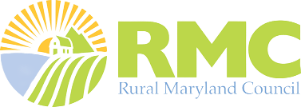Coalition Launches ‘Save A Shore Farmer’ Program
BERLIN – A $19,000 grant is expected to benefit a new outreach program for farmers and their families.
This month, the Suicide Prevention Coalition – a consortium of nonprofits, counseling services, health departments, hospitals, school systems and private behavioral health professionals on the lower Eastern Shore of Maryland – launched its inaugural “Save a Shore Farmer” outreach program with the help of a $19,000 grant from the Maryland Agricultural Education and Rural Development Assistance Fund (MAERDAF).
Ron Pilling, founding board member of the Jesse Klump Memorial Fund – a partnering organization of the Suicide Prevention Coalition – said the coalition applied for the grant after reading a recent report from the Centers for Disease Control and Prevention.
“It concluded that farmers were 3.4 times more likely to die by suicide,” he said. “It jumped out at us.”
“Historically, rural areas nationwide have dramatically higher suicide rates than urban and suburban areas, and when you look at the age demographic, men from the ages of 45 to 64 have a suicide rate that is increasing rapidly,” he said. “That’s our farmers.”
Pilling said the Jesse Klump Memorial Fund subsequently applied for the MAERDAF grant on behalf of the coalition in an effort to launch a suicide prevention initiative in local farming communities.
“One of the issues the grant thought to address was rural health, so it all tied right in …,” he said. “We were granted the entire $19,000 we sought, and we’ve already hit the ground running on this.”
While the coalition offers public workshops and training events that focus on suicide prevention, Pilling said the $19,000 grant – in addition to donations from the Jesse Klump Memorial Fund – will be used to reach local farmers in a different manner.
“We have no delusions that we’re going to get farmers and farm families to gather somewhere in the community and attend a suicide prevention workshop,” he said, “so this Save a Shore Farmer program is going to be largely media outreach work.”
Pilling said the coalition will use the grant to purchase billboards, public service announcements, brochures and posters and to set up informational booths at agricultural events.
“We want to be at county fairs, next year’s Blessing of the Combines and any place where farmers might gather,” he said.
Pilling noted that the goal of the outreach campaign is to direct farm families to the coalition’s Save a Shore Farmer website, which contains information on risk factors, warning signs and local resources.
“There are some warning signs that are unique to farmers and farm communities,” he said.
Pilling added the initiative comes at a critical time in the farming community.
“As part of the grant application, we solicited letters of support from members of the community,” he said. “One farmer wrote that 2018 is shaping up to be the worst year for farmers since the 1980s.”
While he said it would be difficult to gage the success of the outreach program, Pilling said the coalition is eager to “reach deeper into that community.”
“It is difficult to know if we saved ‘x’ number of lives,” he said, “but if we can somehow justify that the outreach was successful we will apply for the grant again next year to continue the program.”
For more information, visit www.saveashorefarmer.org.
View the original article here.
